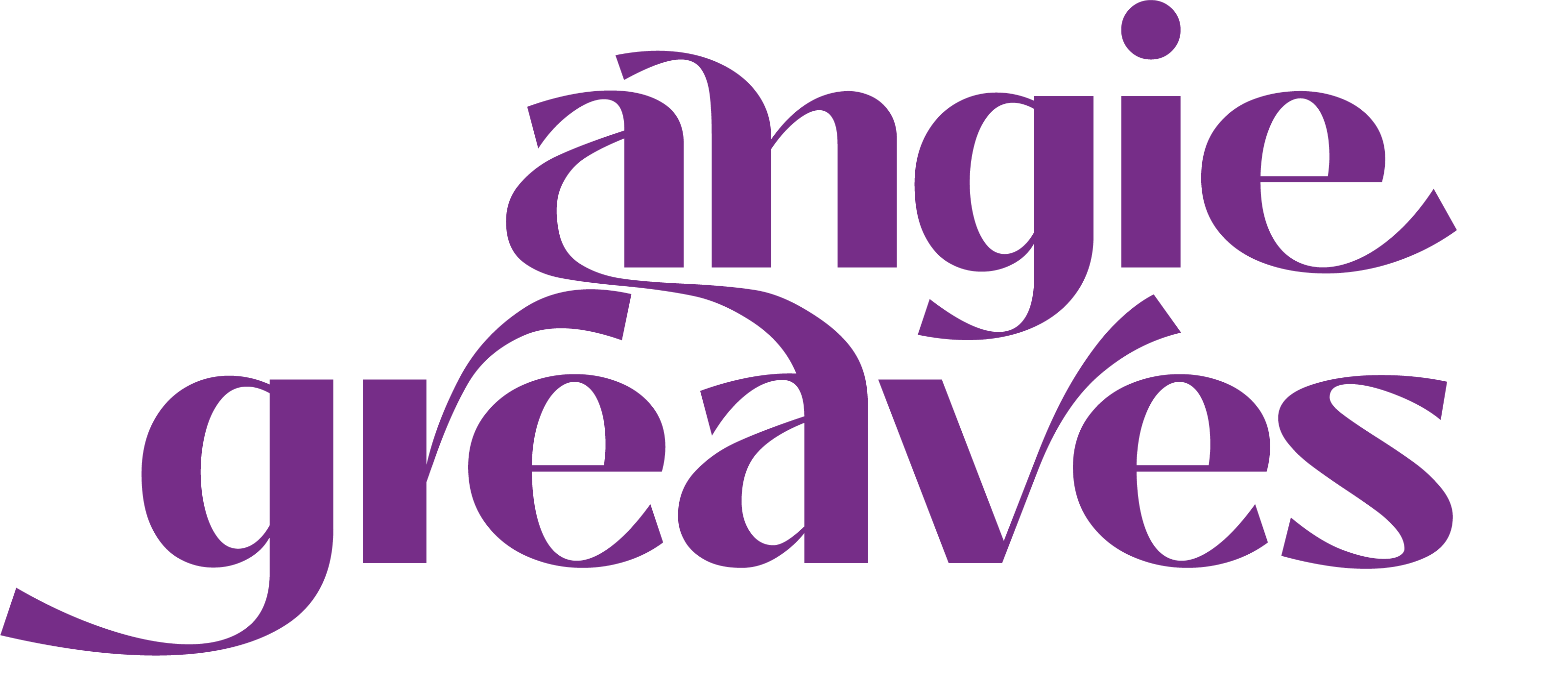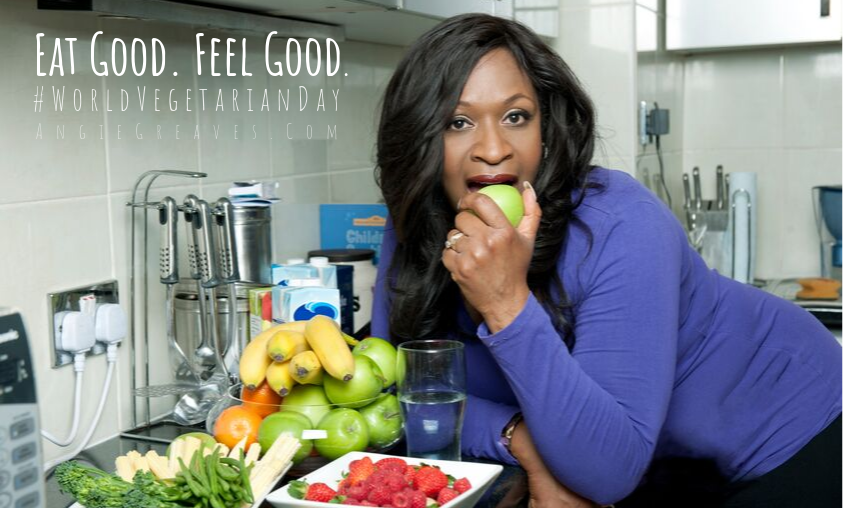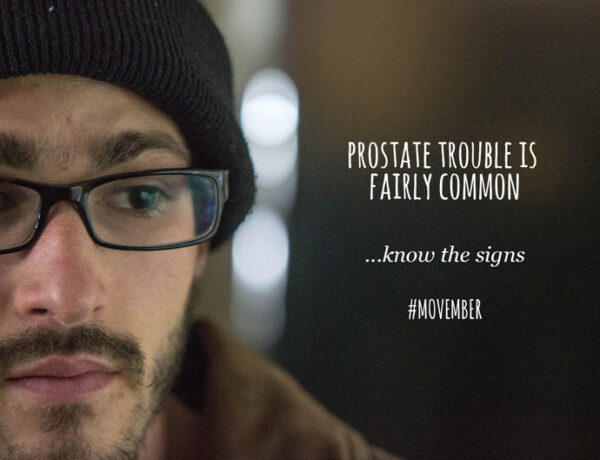Meat, gives us lots of protein, but it also gives us other, less pleasant, things. There are different health problems that can be made worse or even caused by eating meat. Heart disease, gout, colon cancer, and gastrointestinal problems are all included. Then you have the cruelty to animals issue, the environmental issue (greenhouse gas) to add to the list of why eating meat is becoming more problematic than ever.
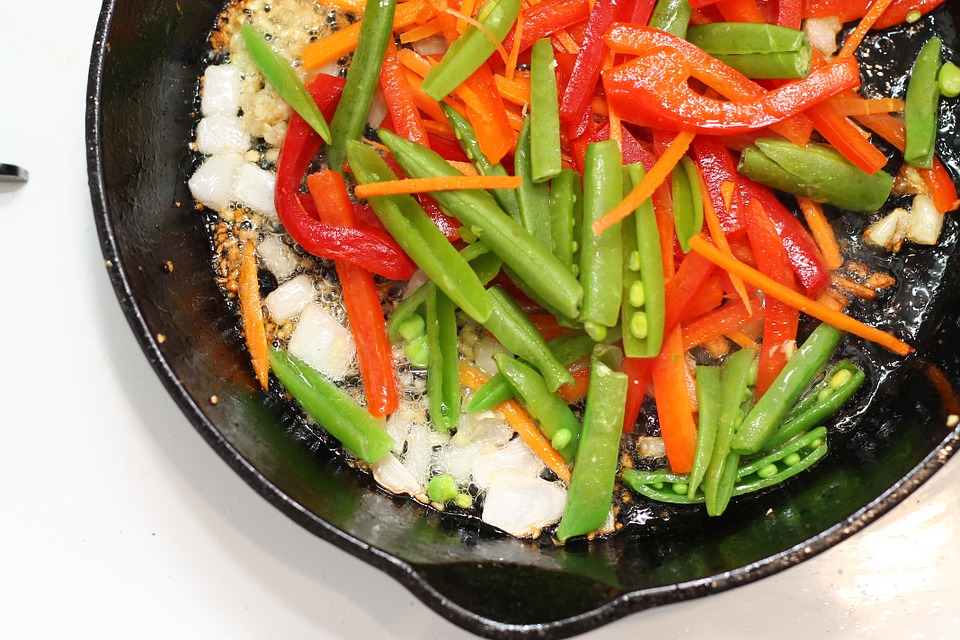
The whole internet has been alive with greenery this week as it’s #WorldVegetarianDay on October 1st. There are endless films and videos on YouTube that detail what animals go through before their chops, steaks and legs are neatly packaged and presented on our supermarket shelves, and I’m not encouraging you not to eat meat, however, I do sometimes think about the stress that animals go through and if I think too hard it leaves me wondering how that stress manifests itself in my body when I’m eating a lamb chop or a pork spare rib.
Another great thing about being a vegetarian is the simple fact that instead of indulging in fattening meats and meat centered meals, you will begin to consume more fruits, vegetables, and other health effective things.
A vegetarian diet has been found to reduce the risk of heart disease, obesity, hypertension, type 2 diabetes and some types of cancer, leading to a longer life expectancy, and may lead to weight loss. A vegetarian diet reduces the risk of heart disease (the #1 killer of men and women) by a third! And British research shows that vegetarian diets result in more energy, calmness, and general happiness AND a better sex life.
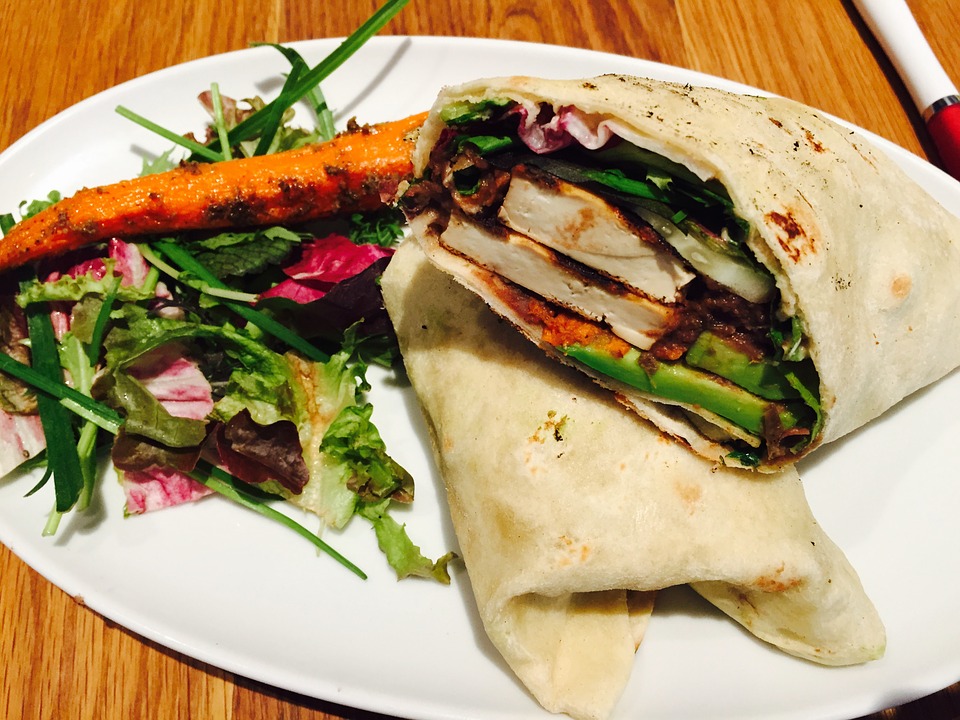
Another surprising benefit according to the Vegetarian Times :
Many foods contain nutrients beneficial to perimenopausal and menopausal women. Certain foods are rich in phytoestrogens, the plant-based chemical compounds that mimic the behavior of estrogen. Since phytoestrogens can increase and decrease estrogen and progesterone levels, maintaining a balance of them in your diet helps ensure a more comfortable passage through menopause. Soy is by far the most abundant natural source of phytoestrogens, but these compounds also can be found in hundreds of other foods such as apples, beets, cherries, dates, garlic, olives, plums, raspberries, squash and yams. Because menopause is also associated with weight gain and a slowed metabolism, a low-fat, high-fiber vegetarian diet can help ward off extra pounds.
For just about every meat item on the market, there’s a meat-free version that’s actually good. From veggie burgers to chick’n nuggets and even corn dogs, you can still indulge in junk meats without going for the real thing—and brands like Dr. Praeger’s, Amy’s, Morningstar Farms, and Quorn are usually sitting right there in your local grocer right next to the real thing. So it’s really easier than ever to make the switch to a veggie rich lifestyle.
Making the change to a vegetarian lifestyle isn’t an easy task, but it’s not the hardest thing to do either. It does require planning and work, especially at the beginning. Figuring out a few go-to recipes that you feel comfortable making (and that you enjoy) is really important. So is figuring out basic meal timing and planning.
Speaking of planning healthy meals, one of my favourite books on the subject is by Liz Earle – ‘The Good Gut Guide’

Liz Earle is one writer/presenter I’ve always followed and respected. From ‘This Morning’ with Richard and Judy to skincare and make-up products in most of the major department stores, Liz cured herself of Eczema using all natural products.
You just MUST have a read of the ‘The Good Gut Guide’. A good clean gut results in better health, skin and well-being and Liz’s latest book details a six week guide complete with recipes – most of which are vegetarian and wouldn’t greatly affect your Slimming World Optimising programme. She really is one fabulous woman.
